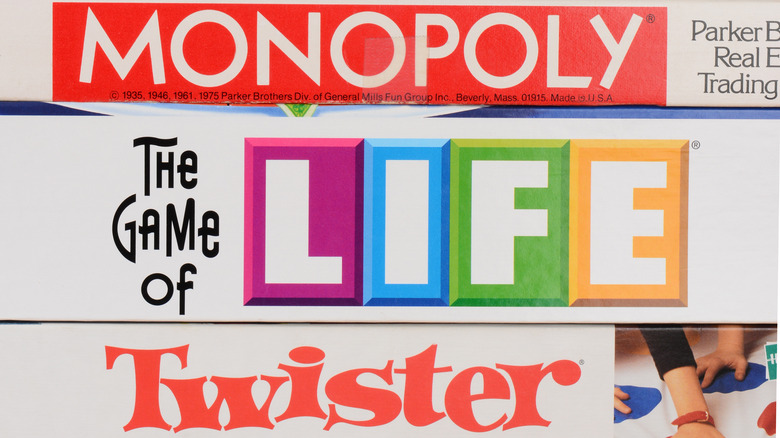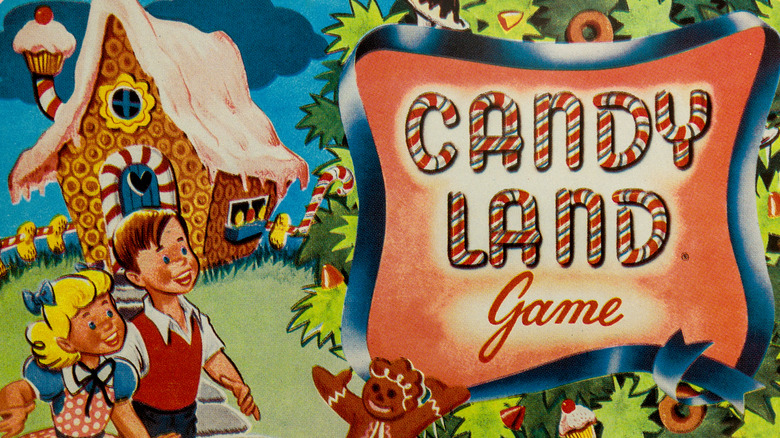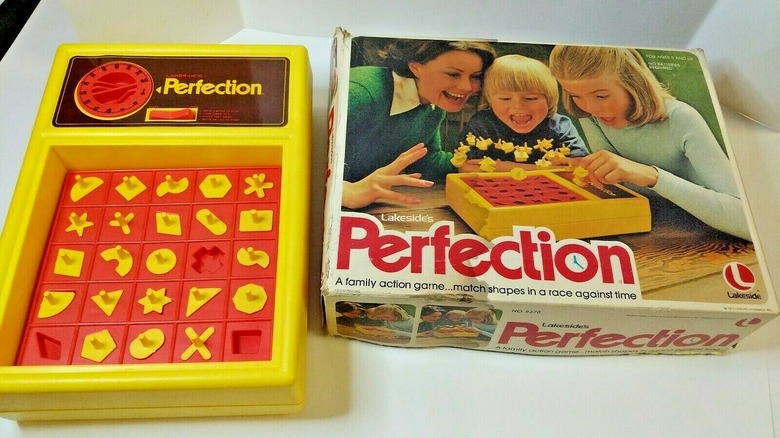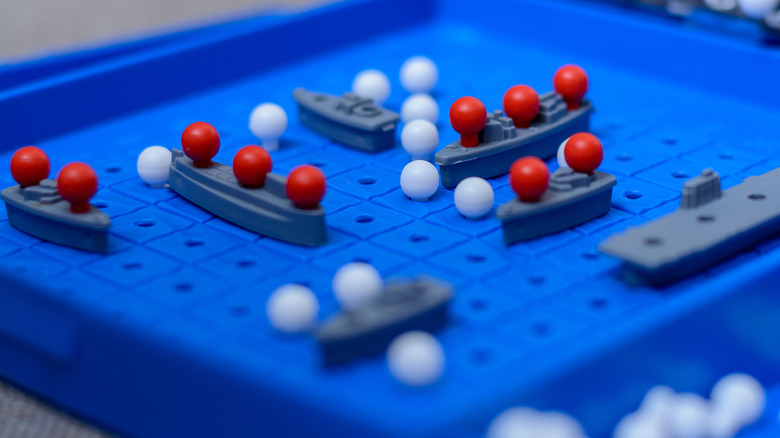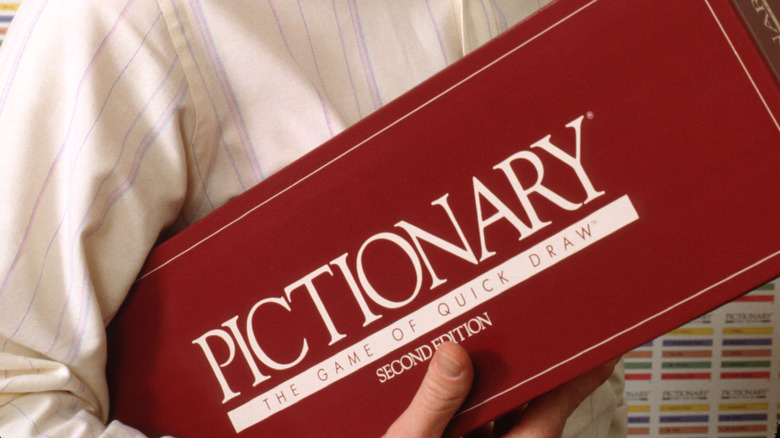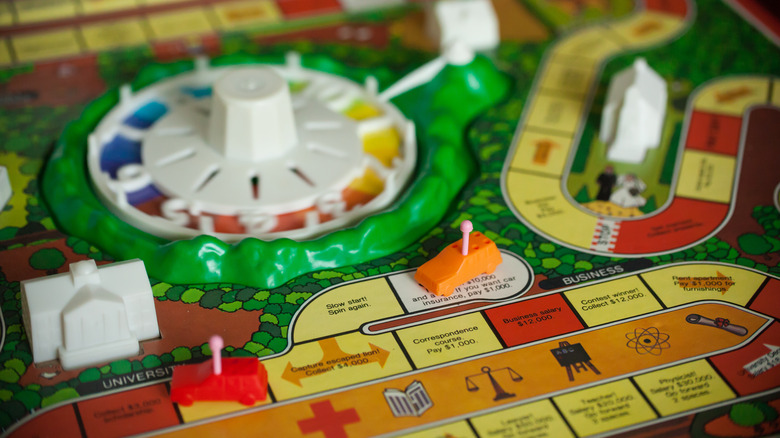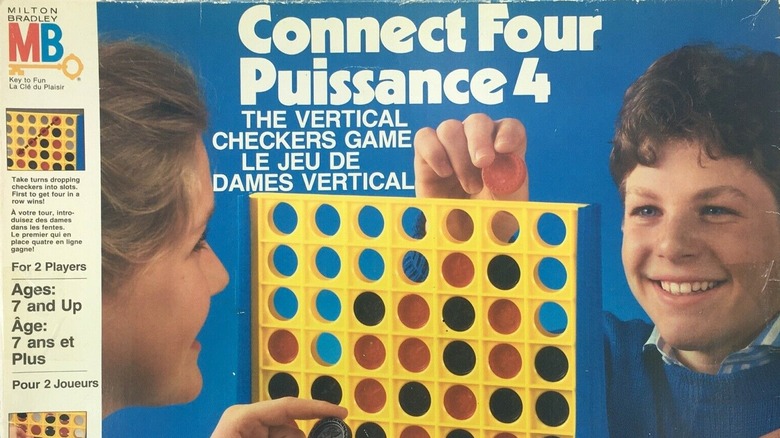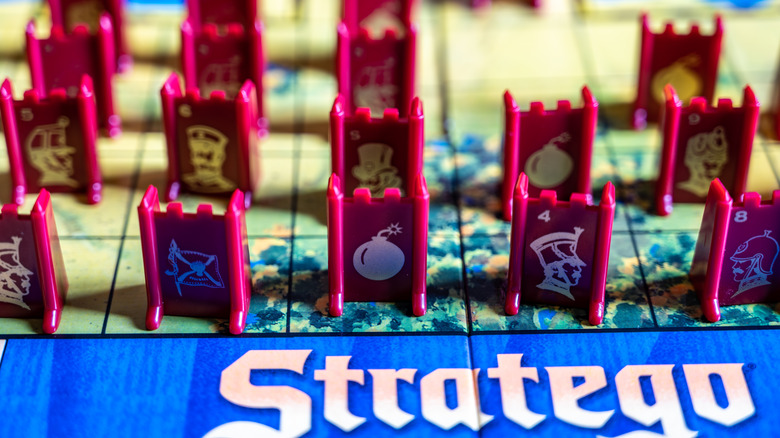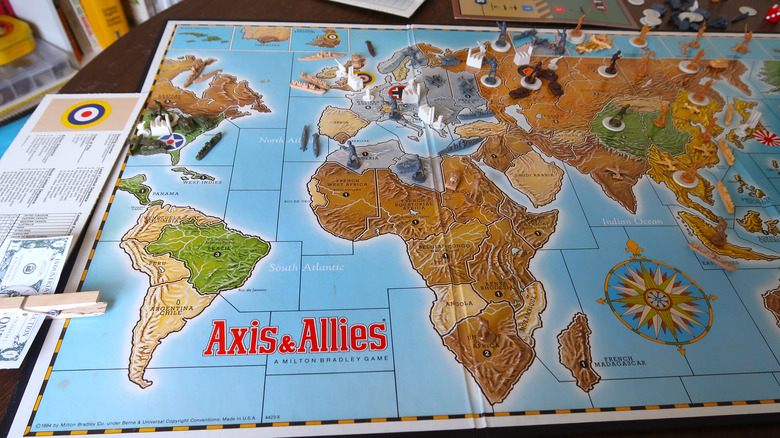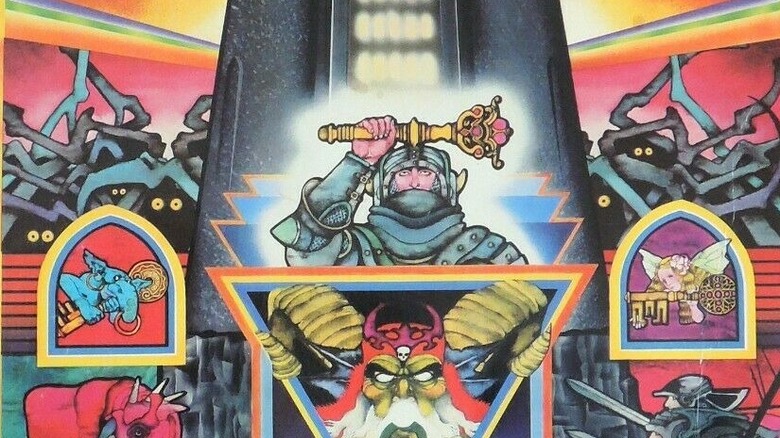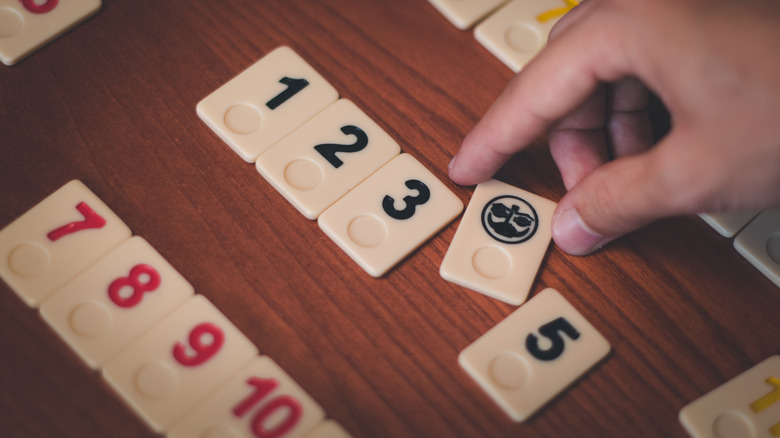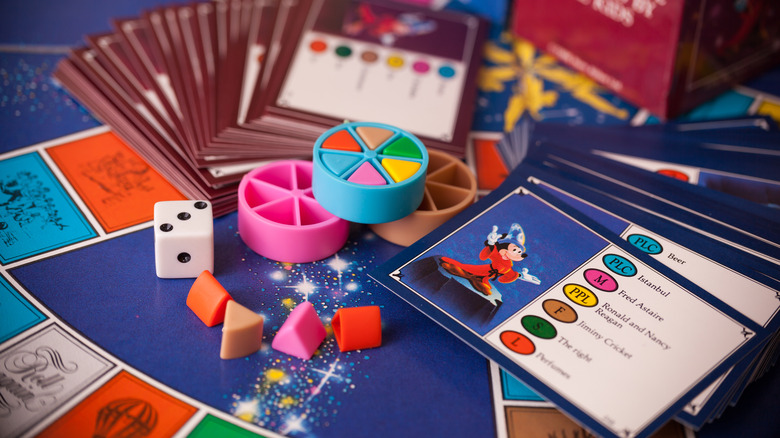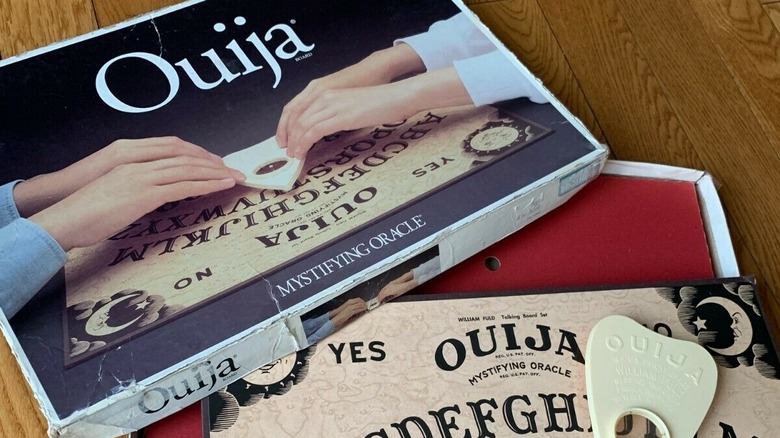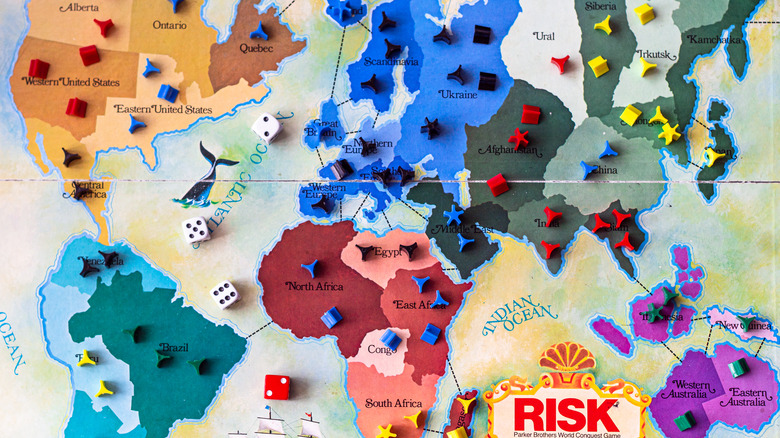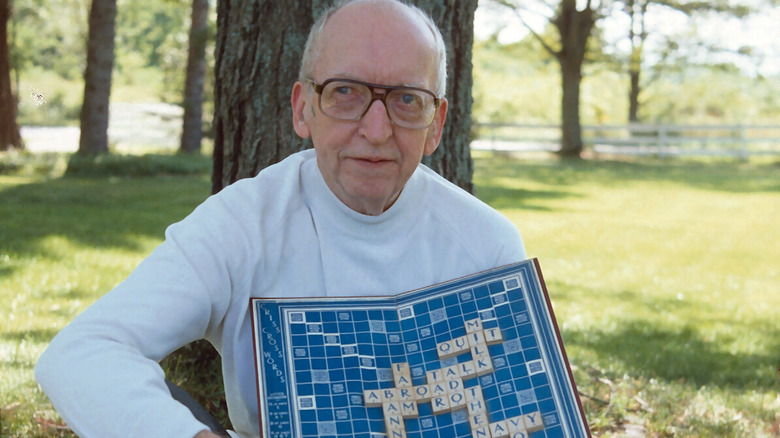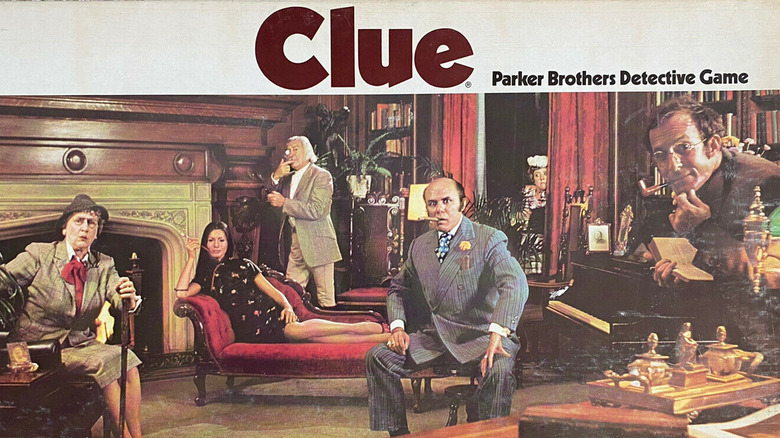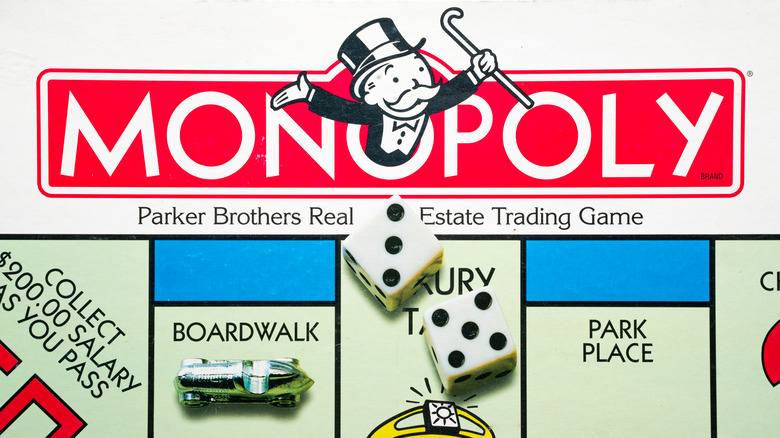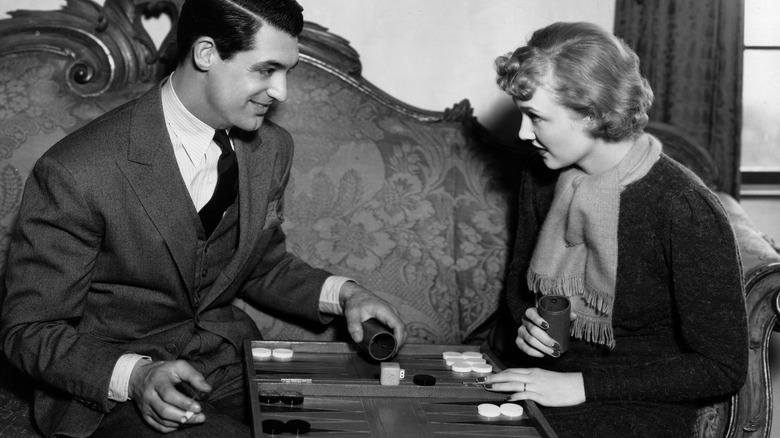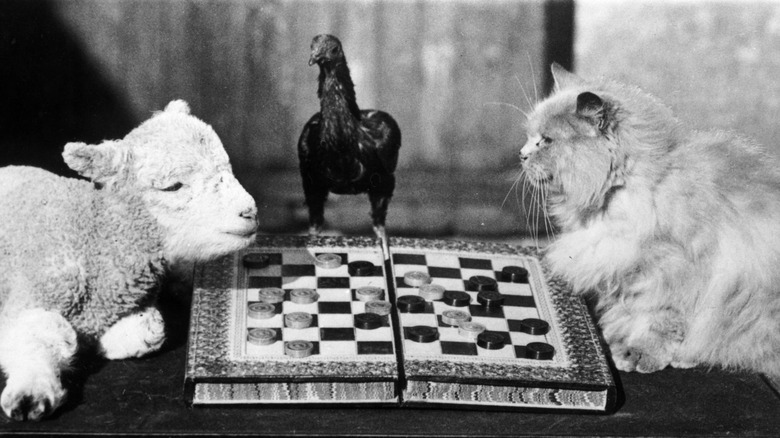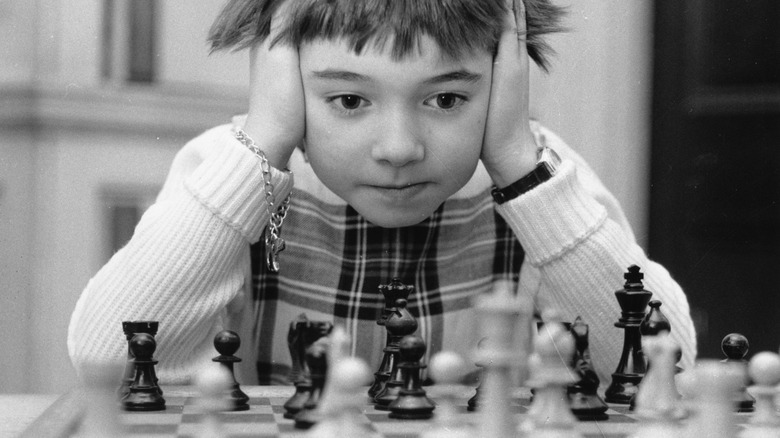20 Best Board Games Of All Time Ranked
Board games have been helping humans leisurely pass the time since at least the Bronze Age, some 5,000 years ago, originating in the Middle East and Far East before spreading out across the globe, conquering new lands and fans along the way. The boards and pieces have been composed of everything from stone to animal bones, wood, tabletops, and in modern times cardboard, and the games from playing war to strategy, chance and child's play.
Game manufacturer (and son of Rummikub inventor) Micha Hertzano said in 1994 that "There are only 10 original games in the world, and all the rest are variations." Some have come to light in the dark of war, or the Great Depression, or even amidst the scourge of polio. Their creators range from child psychologists to filmmakers, journalists, school teachers, and even those looking for a new way to play a favorite game, working around bans in their homelands.
There are well over 70,000 board games in existence, but some have endured and been embraced longer than others, living lives well beyond the board, becoming ingrained in the consciousness of society, and serving as metaphors for life itself. Let's rank the 20 best board games of all time, taking a look at how they journeyed from small beginnings to become households staples and regular friends at pubs, parties and your phone.
Candy Land
"A sweet little game for sweet little folks" was once the phrase that adorned the boxes of Candy Land. Those sweet little folks were initially children in a hospital recovering from polio, and a retired San Diego school teacher named Eleanor Abbott (who in 1947 was also recovering from the disease) became inspired to create a colorful, delicious game for them to play to help pass the time.
Not much is known about Abbott, other than she sketched a prototype of the game on butcher's paper, which impressed Milton Bradley enough to buy it from her. This simplistic game, which doesn't require reading or counting and is one of the earliest games geared for young children, has been on store shelves since 1949.
While the characters (like Plumby) and stops (like Molasses Swamp) along the board have come and gone over time, kids have forever been sweet on Candy Land. Currently, owner Hasbro still sells about a million units a year, and 3 years before Abbot's passing in 1988, she was making 5% royalties on every box sold, some of which reportedly went to purchase school supplies for San Diego children.
There have been several failed attempts to make a movie out of the game, including an Adam Sandler fronted one — but an eponymous Food Network competition show hosted by Kristin Chenoweth did make it to air in 2020.
Perfection
Reed Toys introduced the game of Perfection in 1971, which under the box proclaimed that it's "Really more than a game. While being lots of fun, it is a game which is psychologically oriented and based on the principles of motor coordination." One review at the time likened it to the Stanford-Binet intelligence tests.
Typically played individually, the rules are simple: "Place all of the geometric forms in the places provided within the allotted sixty seconds or less." No batteries are necessary to wind the timer and rush to beat the clicking clock before the pieces jump from the pop-up tray. Back in the day, you could have earned a cool $100 if you beat World Champ Janet Begley.
Perfection has been released in numerous versions and sizes, from Superfection to Head to Head, and has changed owners several times over, from Leisure Dynamics to Coleco and is now in the house of Hasbro. It is one of few games highlighted by America Mensa that celebrates learning for children, and is largely considered the most anxiety-inducing children's game ever created. Its electronic version from 1979 is perhaps the only game to appear on an episode of "Buck Rogers in the 25th Century."
Battleship
Long before kids would shriek "You sunk my Battleship" while playing the search and destroy naval fleet board game of the same name, friendly fire was waged in earlier iterations, in pen and paper form by World War I soldiers, and by the 1930s, civilians. Milton Bradley had their own version called Broadsides: A Game of Naval Strategy, and then changed the game for good when in 1967 they released a hard plastic one, featuring gray ships, red and white pegs, and a gridded board to track all the hits and misfires.
The coordinate guessing game has gone on to sell over 100 million copies in over 40 countries. It got groovy in the late '70s with sound effects in an "electronic" format, and then almost two decades later, a "talking" one too. It's been referenced on "The Simpsons" and in "Batman Forever," played on "Seinfeld," and by Bill and Ted versus the Grim Reaper. In the summer of 2012 Battleship took its battle to the box office, and although many remember the Rihanna/Alexander Skarsgard/Taylor Kitsch flick as a bomb itself, the Universal Pictures blockbuster did end up sailing away with over $300 million worldwide.
Mastermind
The mastermind behind Mastermind (originally two words — Master Mind) was Mordecai Meirowitz, a former Telecommunications Training Director of the Israel Post Office in Haifa, who devised his version of the game Bulls and Cows while playing with his 10-year old son. "The challenging game of logic and deduction" pits a codemaker, who sets four colored pegs to be the code, in up to 1296 possible combinations, that needs to be cracked by the codebreaker.
Meirowitz, who once proposed an Olympic Games for Intellectual Brainpower, encountered many rejections before finding a home with Britain's Invicta Plastics company, who released the game in 1971. The game became a sensation, and by 1973 was the winner of Britain's Game of the Year. It was licensed across the world, and by the end of that decade had sold 30 million copies in over 60 counties. Mastermind has counted Muhammad Ali, the Australian military, and most of Denmark as fans, made minor celebrities out of the man and woman who graced the box, inspired an Atari game, and even had mathematicians trying to break the code in 5 guesses or less. The universal game is produced in America by Pressman, and has sold north of 55 million units.
Pictionary
In the early 80s, recent college grad-turned-waiter Rob Angel and his hometown Spokane friends were having a blast staying up late playing "charades on paper." Angel was inspired by Trivial Pursuit, but "didn't have a dream of inventing a world-famous game. I just wanted to share with others the fun I had playing this game." In 1985, in his tiny apartment, he and partners — accountant Gary Everson and board designer Terry Langston — produced 1,000 copies of the game with the portmanteau title of "pictures" and "dictionary": Pictionary. Three years later, with the help of Western Publishing, the game sold 11 million copies making it the world's best selling game; by the time they sold it to Mattel, 38 million units were sold.
"The Game of Quick Draw" overtook households everywhere, with pencils in hand, a one minute sand timer and "All Play" heightening the drama, it made all of the "picturists" both animate and be animated all in one go. While there were early attempts to have a game show made from it, Burt Reynolds and host Bert Convey beat them to the punch with the similar "Win, Lose, or Draw" (whose set was modeled after Reynolds' living room). Pictionary has been released in numerous versions, such as Junior, dice form, with erasable white boards, and now even an air version. There was a game show hosted by Alan Thicke that lasted one season in 1997, and Jerry O'Connell is hosting a new version in 2022.
The Game of Life
The Game of Life sprung to life when inventor/toy maker Reuben Klamer was tasked by Milton Bradley in 1959 to develop a game to celebrate the company's upcoming centennial the following year. Digging through their archives he found a game that Milton Bradley himself had created, 1860's moral-filled "Checkered Game of Life," and was taken by the word "life" in the title. "It is one of a very few things that every single person experiences," he would later say. "So the market, to put it simply, was literally everyone on earth!"
"Life" takes you, your car and family member pegs on a path you forge – with the help of a colorful spinner — through college, marriage, a career, kids, mountains and buildings, and hopefully to Millionaire Acres. It was endorsed by Art Linkletter, and thanks to designer Bill Markham's first of its kind 3-D plastic game board, it was a hit at the 1960 Toy Fair and went on to become one of the best selling games of all time, shifting over 70 million units.
The game was a 2010 inductee into the National Toy Hall of Fame, has a permanent home in the Smithsonian, came to life in an Acura commercial, been spoofed on "Saturday Night Live," and parodied by its own current owner, Hasbro, with the "Quarter Life Crisis" edition.
Connect Four
Dr. Howard Wexler was a child psychologist who dabbled on the side with inventing toys and games. After selling some to Pressman, he joined Hasbro as a product manager, and then broke out on his own again "to invent the best strategy game ever." When thinking about how all games are played on a horizontal plane, he pondered, "What if I invented a game that played on a vertical plane? As soon as I made that connection, Connect Four was born" in 1973 with co-inventor Ned Strongin (and not David Bowie). Nine companies passed on it before it was released a year later by Milton Bradley as a "vertical checkers game!"
A seven by six grid awaits two players, who try their best to accomplish the title of the game in a row, without letting their opponent get there first. There are an estimated two trillion ways to win Connect 4 (as Hasbro now spells it), and some of those have been put on in display on "Lost," "The O.C.," "Scrubs," and even in the Yankees clubhouse, where Derek Jeter's strategy was to "have no fear."
Wexler has invented and licensed over 120 games and toys, including but not limited to the Rodney Dangerfield board game "No Respect." In 2020, his son David sued Hasbro for allegedly stealing his idea to create mash-ups of games in their catalog. They ended up releasing a few, including a Candy Land/Connect 4 game.
Stratego
"The Popular Old World Game of Skill and Strategy" is how Milton Bradley marketed their new 1961 board game Stratego (derived from the Latin word "strategus," meaning leader, commander or general of an army). The game itself wasn't new; it was invented with the same name during WWII, in 1942, by a Jewish Dutchman named Jacques Johan Mogendorff, who a couple years later survived the Holocaust. The game bares resemblance to forerunners like the French game L'Attaque and the earlier Chinese one, "jungle" or "animal chess" (dou shou qi).
On a 10x10, chess-like grided battlefield, you have a ranked army of Napoleonic decked-out soldiers and high ranking officials as well as a spy in your attempt to capture your opponent's flag, while employing bombs to protect your own. Like most popular boardgames, Stratego has released many versions, including Waterloo, Civil War, Star Wars, Lord of the Rings, and even Democrats vs. Republicans (spin doctors fill in for miners to help you capture the White House). The game remains popular around the world, including in its native Netherlands, and perhaps with the English heavy metal band Iron Maiden, whose music video to their 2021 song "Stratego" gives a nod to the classic.
Axis & Allies
"Axis & Allies bridged the military-simulation games and the popular board games," inventor Larry Harris, Jr. said of his own mammoth creation, which has occupied many dining room tables, days on end, over the past four decades. His father's experiences in WWII ("he should have been killed three times") shaped his son's love of history, and the Vietnam veteran spent a lot of times visiting battlefields and memorials of the Second War, which coupled with a love of uncomplicated war games (Risk "captured my imagination"), pushed him into the industry. 1981 saw the initial release of his Axis & Allies (originally called 1942, until hobby shop owner Pat Flory came up with its fitting final name), and three years later, he joined Milton Bradley as a designer and brought the game along with him.
Harris said Axis & Allies "not only became a classic, but a franchise," covering different theaters and years of the war. It has branched out beyond the board, in numerous computer and online games, including a CD-ROM edition featuring a picture of his father on the back of the box. Harris has created over 200 games for the likes of Hasbro, Parker Brothers, Mattel Inc. and Milton Bradley, and recently spent five years in his "war room" creating his WWII "magnum opus," aptly named War Room, and working on his next, Imperial Borders.
Dark Tower
Dark Tower (no relation to the Stephen King novels) had a short shelf life, but the 1981 Milton Bradley game was an innovative novelty upon its release, being one of the first to combine a board game with an electronic computer centerpiece, and even with a hefty price tag of nearly $40 (almost $130 today), it netted $20 million dollars within 2 years. Orson Welles' omniscient voice was employed for the initial TV ad, explaining the fantasy gameplay: "I had to find three keys, laid siege to the tower, and defeat the enemy within. Each move was a challenge. The computer kept track, giving me secret information, pictures, sounds, surprises."
The beautiful artwork within the electronic tower was created by illustrator Bob Pepper, who said Milton Bradley made the game "to cash-in on the new Dungeons & Dragons craze." While the company credits employee Vince Erato with the concept, as the game evolved from "Venture" to "Hostage" to "Dark Tower," inventors Roger Burten and Alan Coleman claim the company stole their idea after they presented and passed on their electronic board game "Triumph" in 1980. The two made headlines in 1985 by successfully suing, earning $737,000 in back royalties.
Shortly thereafter, the game was pulled from production, and its legendary status as an '80s icon of gaming has only grown over time. Collectors searched high and low for a copy, and gamers lucky enough to possess one were scrambling for extra parts. A sequel was recently brought to light after fans pledged over $4 million dollars to bring about a Return to Dark Tower.
Rummikub
After World War II, Romania banned card games to clamp down on gambling, so people got around by playing games with tiles, such as gin rummy. When Romanian Ephraim Hertzano immigrated to Israel in the 1950s, he brought his love of the tiled game with him, and wanted to create his own version which "had no ties to any language or religion," wanting to "bring people together," which he called Rummikub. At first he sold the homemade games on consignment before it caught on in his new homeland, where the game is still produced by his children, Micha and Mariana.
Word of mouth brought Rummikub to America by the mid-'70s, but it was hard to find a set. That all changed when comedian Don Rickles appeared on "The Tonight Show" with Johnny Carson in 1977 and mentioned his wife Barbara's obsession with the "funny game," making it an overnight sensation. It became a bestseller and had fans in Liz Taylor, Rod Stewart, Telly Savalas, Joey Ramone, Lily Tomlin and Warren Beatty.
There are a few variations of how Rummikub has been played — American, and International, but the current and most common rules are known as Sabra. The game pieces themselves haven't changed much over time, just the carrying cases for the racks and 106 tiles, including the ubiquitous smiley face jokers. The first ever Rummikub World Championship took place in Jerusalem in 1991, and has since been held at the Eiffel Tower and a bullfighting arena in Spain.
Trivial Pursuit
On December 15, 1979, two Canadian journalists, a few beers and some unsatisfying games of Scrabble led to the creation of a new game: Trivial Pursuit ("If we'd called it 'Quizmaster 6000,' it wouldn't have had the same cachet"). Its "architect," Scott Abbot, and "general contractor," Chris Haney, amassed 6,000 Baby Boomer friendly questions, covering 6 categories on 1,000 cards, and had players earning pie piece wedges for correct answers across a six-spoked wheel board, from their "party in a box."
Released in 1981 as the "Genus Edition," it came to America through Selchow & Righter the following year, where "Trivial Pursuit" fever swept, including "very competitive" match-ups on the set of Lawrence Kasdan's 1983 film "The Big Chill." Advertising and promotions were put into high gear, and copies were even sent to Hollywood stars that were answers, prompting Gregory Peck, James Mason, Pat Boone and Larry Hagman to write letters of thanks to the manufacturer. Time Magazine would declare Trivial Pursuit as "the biggest phenomenon in game history." Haney said the game became "a money machine," selling 40 million units in just 36 months, grossing $1.4 billion.
Those heights were never matched again, even with over 275 subsequent editions to choose from. Trivial Pursuit was a trailblazer for adult gaming, and still remains a viable seller in the 21st century. It is also a valuable brand name, as a game show is currently being developed by Entertainment One with LeVar Burton as host.
Ouija
The origins of Ouija are fittingly murky, but using tools to communicate with spirits dates back to ancient China, Greece and Rome. The late 19th Century saw a rise in spiritualism, and by 1886 there were illustrated articles about a "talking board" that answers questions by spelling them out, or simply with a "yes," a "no," or "goodbye."
"Ouija" was first sold as a "mysterious 'planchette'" for .50¢ — with Marylanders E.C. Reiche, Charles W. Kennard and Elijah J. Bond all having a hand in its start. The latter two partnered to bring it to market, with Bond's name etched onto the 1891 patent. Bond's sister-in-law, a medium named Helen Peters, asked the board what it's called and it supposedly replied "Ouija," meaning "good luck." Others claim it's simply the French and German words for "yes" together: "Oui-Ja."
The board proved to be good luck for William Fuld, who took over in 1892, and marketed and sold Ouija to great success, until his untimely death after falling off his factory roof in 1927. His family held onto Ouija until selling it off to Parker Brothers in 1966, and a year later, it topped Monopoly in sales.
Ouija now scares up sales for Hasbro, and has tried to provide answers for Aleister Crowley, Sylvia Plath, Alice Cooper, and budding criminals. It has appeared in a Norman Rockwell painting, "The Exorcist," "Witchboard," "What Lies Beneath," "Paranormal Activity," and a pair of recent Blumhouse films.
In 2007, Elijah Bond got himself a new gravestone, in the shape of ... you guessed it ... a Ouija board.
Risk
Three years before his short film "Le ballon rouge" ("The Red Balloon") won an Academy Award, Albert Lamorisse submitted a patent in 1954 for a Napoleonic global war game that he created while on vacation. The company Miro streamlined the game (so long navies) and released it in 1957 as La Conquête du Monde (The Conquest of the World). Miro then turned to Parker Brothers in America, who didn't like its militaristic name, and a salesman by the name of Elwood "Al" Davies wrote four letters on a piece paper, "R-I-S-K," which were the first four initials of his grandchildren (via "Tortured Cardboard"). Further gameplay modifications ensued, and the game of Risk! was released in 1959, as Parker Bros' "new continental game. The most unusual game to appear in years."
Risk eventually lost its exclamation point, but continued to gain new players in the ensuing years, looking to conquer the world (including territories with exotic names like Irkutsk, Yakutsk and Kamchatka) with the help of Risk cards, colored army pieces and lucky rolls of the dice. Royalties from the game helped Lamorisse fund his documentaries, until his death from an air crash in 1970 (his Times obituary didn't even mention the game).
The game of "Strategic Conquest" was named "Game of the Century" in 1993 by The Guardian, has begat numerous versions (some beyond Earth's continents), inspired the makers of Axis & Allies and Catan, and in 2021, joined American Girl Dolls and Sand as official inductees into the National Toy Hall of Fame.
Scrabble
Alfred Mosher Butts was an out of work architect (and artist) during the depression, and with time on his hands pondered: "There is one thing that keeps word games from being as popular as card games: they have no score." The Queens resident was a lousy speller but a fan of anagrams, poured over the New York Times, noting the distribution of letters in words on the front page, and assigned a numerical value to each. In 1931, his word game was called "Lexico," and inspired by crossword puzzles, added a board in 1938 and renamed it "Criss-Cross Word."
Butts sold the production rights to a fellow game enthusiast "with a flair of promotion," James Brunot. Brunot and his wife tweaked it, renamed it Scrabble (Butts later said, "I don't even know why it's called Scrabble, to tell you the truth"), and manufactured sets out of their home in 1948. By 1953 Scrabble was "Game of the Year," but with sets impossible to find, Brunot turned to Selchow & Righter to help spell his production woes. They bought the game outright in 1972, and current owners Hasbro claim the "game is found in three of every five American homes."
Scrabble has made spelling fun for all ages, challenging wordplay in tournaments and game shows, serving as a conversation starter for the likes of Calvin and Hobbes and appearing in "The Handmaid's Tale" and "Rosemary's Baby." It also inspired the popular app Words with Friends.
By the way, good luck trying to lay down the highest scoring word "Oxyphenbutazone," which would net you 1,778 points.
Clue
Anthony Ernest Pratt was stuck at home in Birmingham, England, lamenting that "this wretched old war [WWII] was killing the country's social life." He and wife Elva coupled their love for mystery novels and of "a stupid game called Murder, where guests crept up on each other in corridors, and the victim would shriek and fall on the floor," and set about making a who-how-where-dunit board game. The initial title was Murder at Tudor Close, and submitted for a patent in late 1944, originally with 10 suspects (including Doctor Black, Miss Grey and a then Colonel Yellow), weapons (death by bygone poker, syringe or bomb) and various rooms (including a gun room).
When the game made it to the firm Waddingtons, the "murder"ous title was replaced by Cluedo — a mash-up of "clue" and "ludo" (Latin for "play"). A cardboard shortage held up production in Britain, but their American partners at Parker Brothers, who previously were anti-murder games (via "Tortured Cardboard"), released it in 1949 as Clue — The Great Detective Game. Pratt would sell off his rights to future royalties, leaving him out of all the "killer" cash to come, and died in near obscurity.
The deductive game has sold well over 150 copies (including a VCR version!), inspired a hilariously clever 1985 film with multiple endings, a British game show, and still has its rabid fans dressing up as their favorite suspect.
Fun fact: The wife of "Inside the Actors Studio" host James Lipton portrayed Miss Scarlett in the 1972 edition of Clue.
Monopoly
According to Hasbro, The Monopoly timeline only begins in 1935, when the game's "inventor" Charles B. Darrow licensed it to Parker Brothers, which they marketed as having "the thrill of real estate with little of the risk." It went on to sell more than 275 units and is available in 111 countries — but what we know as "Monopoly" is a version of a forgotten board game invented by a forgotten woman.
Progressive feminist Lizzie Magie wanted to incorporate the lessons of economist Henry George into a game she said would be "a practical demonstration of the present system of land-grabbing with all its usual outcomes and consequences." Her 1904 patented game, the Landlord's Game, had board spaces for properties, railroads and even a "Go To Jail" corner square. It was a hit with Atlantic City Quakers, who added a hierarchy of their street names to the properties. That version landed in Darrow's lap, and he began to collect more than $200.
Monopoly is more than just a game; it's an ingrained part of the world and culture — from world leaders talking "Monopoly money," to "-opoly" becoming a catchy and overused suffix. It helped POWs escape in WWII, became a McDonalds promotion that turned into a massive scam, and it helped to pass the time in "One Flew Over the Cuckoo's Nest." One billion players can't be wrong on taking a chance, or digging into that community chest in hopes of hitting it big like Rich Uncle Pennybags.
Backgammon
Backgammon is one of the world's oldest games, with forerunner variations having been played by emperors and philosophers in ancient Egypt (found in King Tut's tomb), Greece (like with checkers, also name dropped by Plato and Homer), Rome (Emperor Claudius was a fan), India, China, Japan (Empress Jito banned their game), Persia, and Mesopotamian, where the oldest board found dates back to 2400 BCE.
The Crusaders brought the game back to Europe, when in the Middle Ages it became known as Tables. The parlor game surged in popularity, even making its way into the works of Chaucer and Shakespeare, but when it became associated with gambling, it prompted kings and the church to try their best to put the kibosh on it. According to the Oxford Universal Dictionary, the earliest use of the word "backgammon" dates to 1645, and some believe it derives from Middle English words "baec" (back) and "gamen" (game).
The classic game pits two players, who are each trying to move their 15 checker pieces across 24 triangles to "bear off" them from the board, with the assistance of dice being tossed around in the sweet sound of a shaker. Backgammon has had several resurgences in popularity (in the mid-20th century thanks to Prince Alexis Obolensky) and counts among its fans Sir Walter Scott, Thomas Jefferson, Marie Antoinette, J. Edgar Hoover, James Bond, Joan Crawford, Cary Grant, Lucille Ball, Hugh Hefner, The Rolling Stones, Vladimir Putin, Leonardo DiCaprio, Beyoncé and Jay-Z.
Checkers
The backstory of Checkers (also known as Draughts), is a bit ... checkered. Its ancestor is the Middle Eastern game Alquerque (or Quirkat), which dates as far back as 1400 BCE, had a 5x5 grid board, diagonal lines, and 10 pieces per side. That game was stretched out to a 8x8 chessboard in the 12th Century, rumored to be by a gamesman in the south of France, and called Fierges. By the 15th century, it became Dames, and in England, Draughts, which derives from the Middle English plural word "draghtes." In America, the game was called Checkers, extracting its name from the checkerboard where the player aims to capture all of their opponent's pieces, and its first known word use was in 1712.
Andrew Carnegie credits a game of draughts ("checkers" in America) for his first baby step on his path to greatness, writing in his autobiography, "Upon such trifles do the most momentous consequences hang. A word, a look, an accent, may affect the destiny not only of individuals, but of nations." He wasn't the only checkers player to achieve great heights — joining the ranks of George Washington, Benjamin Franklin, Abraham Lincoln, Edgar Allan Poe, Teddy Roosevelt, Thomas Edison, Harry Houdini, Will Rogers and Marion Tinsley, who was regarded as one of the game's greatest players ever.
Even though none of those, or any other human player, has ever made all the 500 billion possible moves, a computer once did, taking more than 18 years to find the perfect game and "solve checkers" (spoiler alert: it's a draw).
Chess
The evolution of Chess to become the world's most beloved game has naturally consisted of many moves over the centuries. Its predecessor was India's chaturanga (Sanskrit for "four-limbed"), which dates back to the 6th Century. The game, played on a 8x8 grid, spread to Persia, then the Arab world, as well as Asia, and penetrated Europe in the 12th century, where it was embraced by nobility. The "Game of Kings" modern name has its roots in the Persian word for the all important king playing piece, "shah." In Old French the game was called "eschec," (for the "check" move), and from its plural form, "esches," in Middle English; in the 14th Century, it became chess.
Ben Franklin was a wise man, with much to say, and said this about the game: "Life is a kind of Chess, in which we have often points to gain, and competitors or adversaries to contend with, and in which there is a vast variety of good and ill events, that are, in some degree, the effects of prudence or the want of it." He was not alone in partaking and pondering about one of the world's most enduring pastimes, hobbies and obsessions, along with Napoleon, Vladimir Lenin, Humphrey Bogart, Spock, Howard Stern, Garry Kasparov, Bobby Fischer, Harry Potter, Beth Harmon, HAL-9000, Deep Blue and, quite famously, even The Grim Reaper — all of whom have been game to sacrifice a pawn or two on chess sets of all shapes and sizes.
